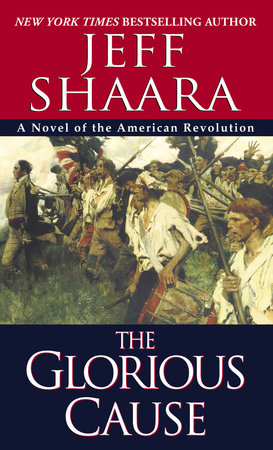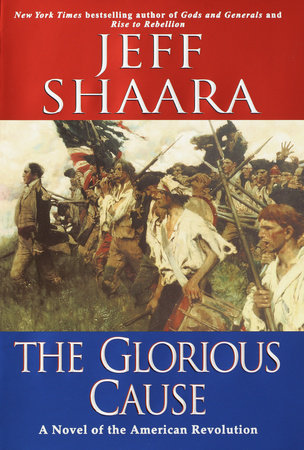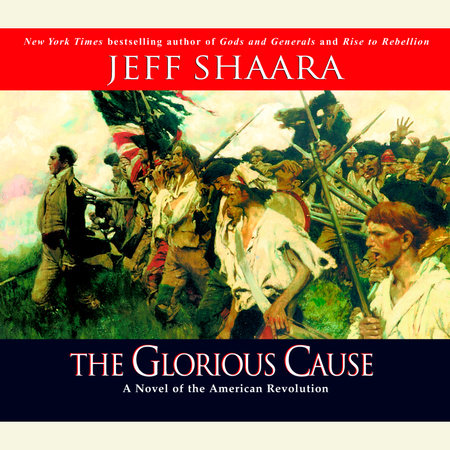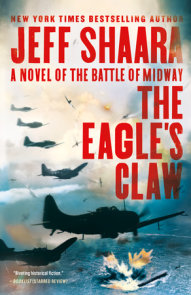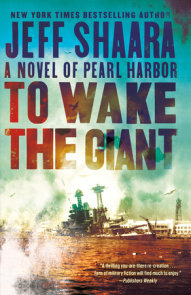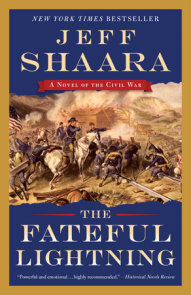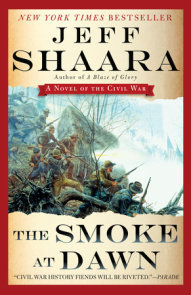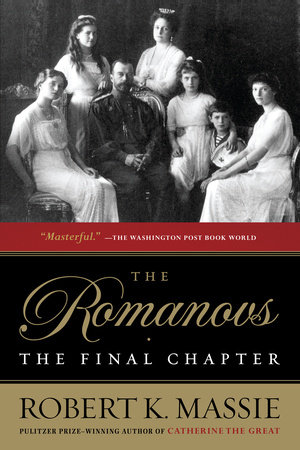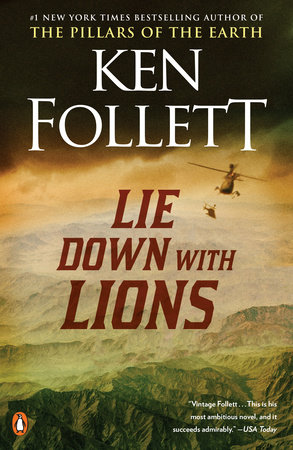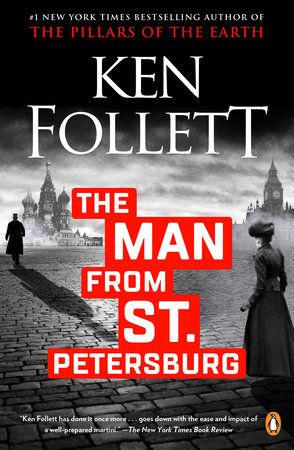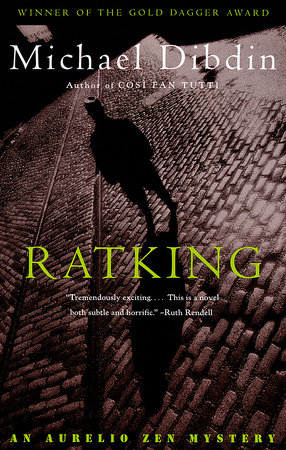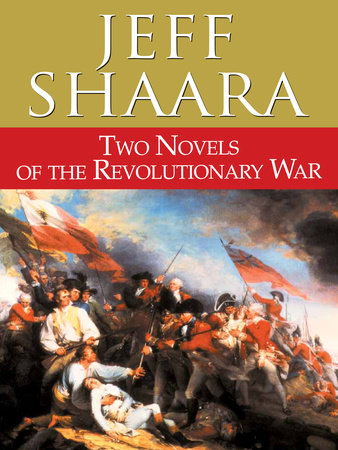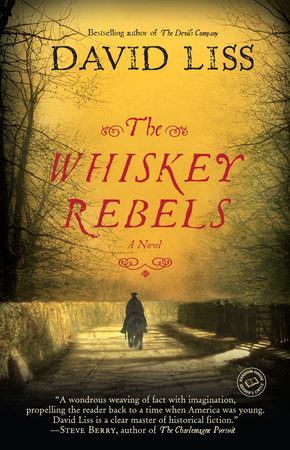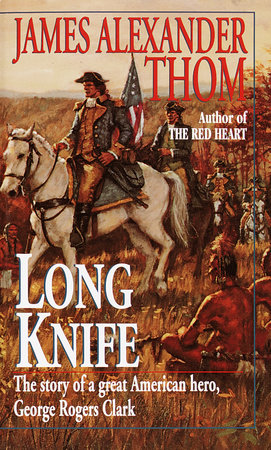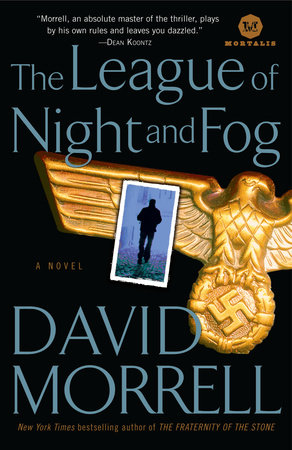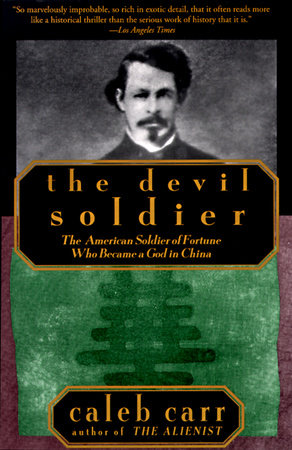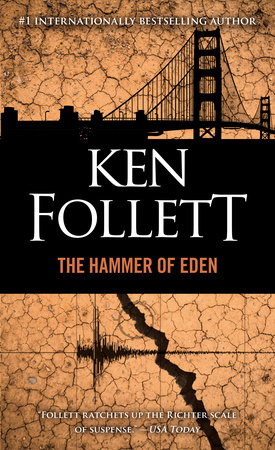Author Q&A
INTERVIEW WITH JEFF SHAARA
AUTHOR OF THE GLORIOUS CAUSE
Q. This is your fifth book dealing with a monumental event in American history. How did this story differ from the others?
A. The story of the American Revolution is in some ways more relentless than any story I’ve told thus far. From every character’s point of view, the events are a constant flow of crisis, triumph and catastrophe. I found I had to push myself to move through the timeline with more energy than the other books, not just because of the span of time the book covers (six years) but to propel the story without getting bogged down in any one event. The story of the American Revolution is really a collection of magnificent stories, many of which could be expanded into its own book. It was a challenge to drive the flow of the book deeply enough through each event that nothing is lost.
Q. How is this story similar to those you’ve done before?
A.As with the Civil War stories, the events are pivotal to our history, and the characters are people who have made their mark on history by their extraordinary performance in a crisis situation. Whether talking about the Civil War or the Revolution, the gravity of the time brings out the best or worst in those who played a key role. The attraction for me is how the main characters rise to the occasion, how ordinary men and women become extraordinary figures of history. There are as many heroic and tragic stories during the 1770s as there are during the 1860s.
Q.In this book, you are continuing the format begun by your father, Michael
Shaara, of moving the point of view from character to character. Why?
A.No one character can tell this entire story alone. No one was at every pivotal place, and since I try to take you into the minds of these characters, no single person knew everything that was happening at one time. I always try to select a small number of main characters, and focus on each one as the story progresses. By choosing those key participants who were responsible for so much of the events of the day, I can move more easily through the timeline. It’s far more interesting to me to see how opposing players, such as Washington and Cornwallis, will see the same event unfolding in front of them.
Though so much is happening in America during the 1770s, the intrigue and negotiations in Paris are key to the story as well, and no one was more pivotal there than Ben Franklin. It would be ridiculous to try to tell the story of the French coming into the war from Washington’s point of view. For most of the war, he simply wasn’t involved.
Q.Since you’ve mentioned a few of the key characters in this story, explain how you chose each one. Who else do you bring forward?
A.George Washington and Ben Franklin are both key participants in Rise to Rebellion, the prequel to this book. Washington’s role is the dominant one in the story, and as I said, Franklin’s involvement in bringing the French into the war is extremely important. Charles Cornwallis is the British voice, a very important choice for me. There were many key British players, but Cornwallis is in most of the key places, and ultimately, it is his name that most Americans are familiar with. The fourth main character is Nathaniel Greene, a name most Americans do not know. Greene is the finest field commander Washington has in his army, and in some ways is the antithesis of Washington. Greene also goes to the Carolinas to command the army there in the closing campaigns of the war. Since Washington is not there, it made sense to follow Greene through such an important time.
Q.In all your books, you put the reader into the mind of each character, hearing his thoughts. Was this process the same for you in this story as well?
A.Absolutely. The greatest challenge for me is to feel I know each character’s personality. It’s a very risky thing to put words into the mouths of some of the most illustrious men in our history. I can never begin to write a story until I reach that magical place, as though I’m in the room with each one of them. My research is always those original sources that are available, and in this book it is no different. We are very fortunate to have the memoirs of such key participants as the Marquis de Lafayette and Henry "Light Horse Harry" Lee. Franklin’s writings are magnificent, as are many of the surviving letters from Washington, Greene and Cornwallis. By hearing their words, their descriptions, how they responded to the events around them, I begin to feel close to each one of them. Only then can I sit down and begin to write the story.
Q.Were there any surprises in your research, anything unexpected about the characters you chose?
A.I was impressed by Cornwallis. He is much more than a two-dimensional "redcoat," not simply the man who lost Yorktown. I did not expect the extraordinary level of romance that I found in his relationship with his wife, Jemima. It’s a far more tragic story than most Americans realize. I was struck as well by how much the character of Nathaniel Greene is similar to another iconic military commander: Stonewall Jackson. Greene has no patience for ineptitude, in himself as well as others. But as he gains experience on the battlefield, he becomes the model of excellence, and the finest field commander of the war. Like Jackson, he is a family man as well, with deep concerns for his wife and children. It’s sad to me that to so many Americans, he is completely unknown. I was surprised as well by the drama of the role played by two minor characters in this story: Nathan Hale and Benedict Arnold. I always enjoy removing the myth from characters and presenting their honest story. In the case of both men, the truth is far more intriguing than the legends.
Q.This story takes place more than two centuries ago. Is there some lesson we should learn from it, something that applies today? Why should we care about these long-dead figures?
A.I have been asked that a great deal, particularly by younger readers. In every book I have written, I have discovered unexpected parallels to modern times. Some would say that we’re repeating the same mistakes, that we never learn the lessons of history. I’m not sure I agree. We revere certain people in our past because of the mark they made on our history. No matter the mood of this country, or how Hollywood chooses to portray our history, certain truths remain unaltered. Heroism matters. There is a reason why George Washington is a name every schoolchild learns, why so many streets in so many towns are named after Benjamin Franklin. If we forget why, if we tend to overlook the accomplishments, we need to go back and re-learn why these people are so important to our way of life today.
Q. Your books are all set during wartime. Is that the only kind of story you find interesting?
A.It is a tragic coincidence that throughout our history, it is war that brings out those traits most admired. It’s not the war story that interests me. What draws me to these events and times are the characters, the individuals who share one common trait. In all of my books, the key figures are ordinary men and women who rise to meet the particular challenge of their time. None are programmed to succeed, none are born to be heroes. In every story, these people are simply us. It has been suggested to me that this kind of heroism is lost today, that we are a nation that can no longer rise to the occasion. I firmly disagree. I am intensely curious how the events of September 11 will be remembered. A hundred years from now, someone might sit down and write a story about those characters whose names we already know, or other names we might not yet have heard, some man or woman whose heroism, dignity and strength of character places them alongside Washington or Franklin, Grant or Lee. It will be a story that will draw readers the same way we are drawn today to the wonderful characters from our past. And none of them should be forgotten.
Q.Now that you have completed your two books on the American Revolution, what’s next?
A.I have a strong interest in moving forward, a story or two set in the twentieth century. I promise, it will not be something so utterly familiar, such as D-Day or Pearl Harbor. I want to move into a time that we haven’t focused on much lately, more extraordinary characters that I look forward to exploring. After that, I’m thinking of several possibilities. We are a nation with a short but incredibly rich history. As long as readers are willing to explore these stories with me, I’ll continue to write them.
